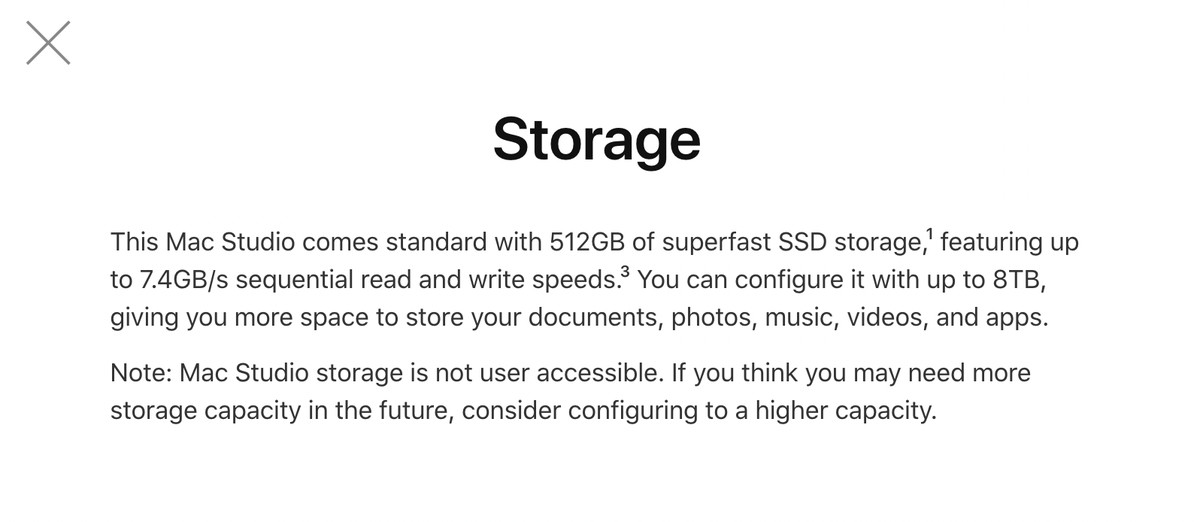During Max Tech’s teardown of the Mac Studio, the channel’s host Max Yuryev discovers something very interesting about Apple’s new hardware: two SSD ports. This may mean that the Mac Studio’s storage is upgradeable after all.
The SSD slots seem relatively easy to access
And there’s more good news: the SSD slots seem relatively easy to access — in the video, Yuryev removes the Studio’s rubber backing to reveal four screws connecting the bottom part of the device’s case. After removing that panel, Yuryev spots two SSD ports nestled beneath the Mac Studio’s power supply that he indicates may be accessible without taking apart the device any further (5:46).
As Yuryev continues to disassemble the Studio, removing its power supply and aluminum backing, he gets a closer look at the SSD ports (8:24). At first glance, he says the ports resemble those on his 2019 Mac Pro, but when he tries out the Mac Pro’s SSD, it doesn’t quite fit. Apple’s SSD kit for the Mac Pro lets users replace their existing SSD with one that supports up to 8TB of storage.

But as Yuryev points out, Apple’s note on the Mac Studio’s product page blatantly says users can’t access the device’s storage. “Mac Studio storage is not user accessible,” Apple’s note states. “If you think you may need more storage capacity in the future, consider configuring to a higher capacity.”
The Mac Studio can be configured with up to 8TB of internal storage; the standard model with 512GB SSD storage costs $1,999, and adding 8TB tacks on an extra $2,400. Although the Studio’s internal storage may be upgradeable at some point, it’s worth noting that because the RAM is integrated into Apple’s M1 chip, there’s no way to upgrade it after purchasing the machine.
Related
Apple Mac Studio Review: Finally
It’s unclear if we’ll get a similar DIY SSD installation kit for the Mac Studio in the future, as Apple’s wording suggests it might want that work done by a professional. Apple currently lets user bring their iMac Pros to Apple Stores or authorized service providers to add more RAM — but of course, that doesn’t stop tech tinkerers from doing it themselves with third-party components (like those offered by Mac part provider OWC).